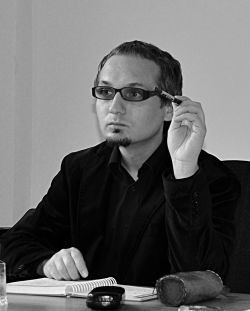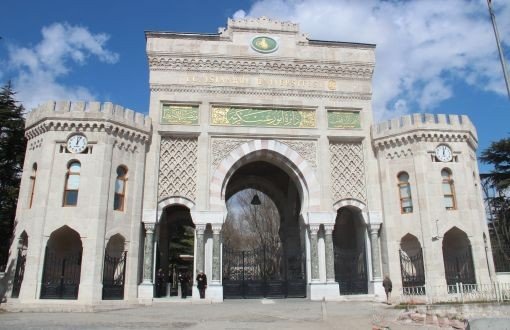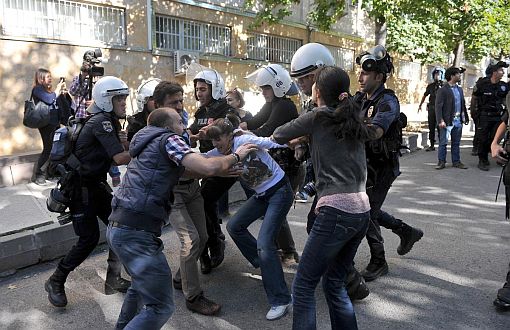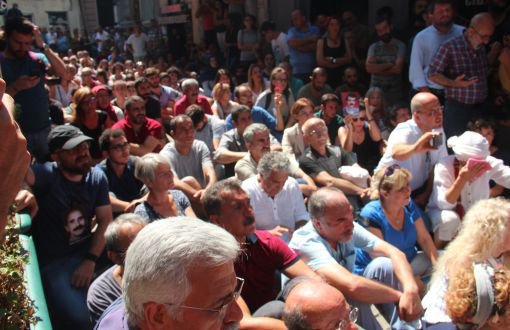Click here to read the article in Turkish / Haberin Türkçesi için buraya tıklayın.
His resignation process has started when he commented on one of his friends’ Facebook page about the support letter related to Peace for Academicians.
He resigned and went back to Romania in four days.
We talked with Stavilă about the causes that determined his resignation, being a foreign academician in Turkey and his thoughts about academia in Turkey.
He talked about how he was shocked about not being allowed to discuss politics in the university; advice of his colleagues about not to sign the letter; how he was afraid when his social media pages had been monitored; the situation of Turkish academia; and how the pressure on signatory academicians reminded him his experiences during Ceauşescu’s worst years in communist Romania.
His statement that “I am now out of Turkey and safe to tell the story” is like a summary of his experience.
“My contract would be extended”
* How long have you been in Turkey? What was the deadline of your contract?
I defended my PhD in political and social sciences in December 2013 (European University Institute, Florence, Italy). I have lived in Turkey from February 2015 until January 2016. My initial appointment as Assistant Professor was related to a one-year fixed term contract (for the 2015 Spring and Fall Semesters). As a political theorist, I have been employed by the Department of Political Science and International Relations, Faculty of Economics and Administrative Sciences. However, last semester Muğla Sıtkı Koçman University decided (based on my teaching activity and on my publications) to extend my contract for two more years, which (as far as I have been told) is the maximum period a foreigner can be employed in a state university. When I was fired last week (on Monday, the 18th of January), I was expecting the documents from the Turkish Council of Higher Education (YÖK) related to this new contract.
“Restriction on discussing politics in university”
* Have you ever experienced pressure before?
The very first thing I was told by my former Head of Department in the first evening I arrived in Muğla was that I am not allowed to discuss politics on the universities’ premises. Giving the fact that I was about to be employed by a department of ‘political science’, I was quite shocked. The shock has been amplified during the following months: during the year I have been asked by my students to comment on the major political events (the two rounds of elections, the Kurdish conflict, the Ankara bombings, or even the Armenian genocide). I have to admit that I declined to do so, explaining them in particular that I have been specifically requested to refrain from doing it. I cannot give names, but I can assure you that other foreign nationals teaching in Muğla and other state universities are feeling the same pressure. So yes, I would rather say that both national and foreign academics working in Turkey are constantly under political pressure. Usually, the unofficial request is to praise Turkey as much as possible and to refrain from discussing political topics.
“I am now safe to tell the story”
* What was your Facebook comments content?
I am now out of Turkey and safe to tell the story. I was afraid for my own personal security since my profiles on social media have been constantly monitored. Basically, on Thursday, the 14th of January Muğla Sıtkı Koçman University’s Rector Prof. Dr. Mansur Harmandar published on the University’s official Facebook page an announcement according to which all professors working in Mugla who supported the ‘Academics for Peace’ initiative will be subjected to administrative and criminal investigation.
Personally I signed neither that letter, nor the ones that followed. I was specifically advised not to do this by one of my colleagues. However, the following day (Friday, 15th of January) I have seen, on one of my Facebook friends’ page (a Romanian professor teaching in the United Kingdom) a letter of support for Turkish academics. In a very short comment I wrote:
‘It’s incredible what’s happening in Turkey right now. Many of us (foreigners teaching here), including myself, are seriously thinking to leave asap... and to send private letters to our academic colleagues outside Turkey to support those already in problem here... Turkey has come back to the dark ages, some of us are threatened both by the managers and by the students... Thank you for helping and spreading the word.”
“Why did you write such a comment?”
How did the process which led to your resignation developed?
In less than two hours I have been called by my Head of Department. She was very angry; she asked me why I wrote such a comment and told me that my contract may not be renewed ‘by the YÖK’. I tried to explain her that I have already lived under an appalling communist regime and that I am not going to repeat that experience. She angrily closed the phone before having the time to express my astonishment or any explanation.
On Monday, 18th of January, after a lot of thinking, I decided to resign from my position if the situation persists. I called my Head of Department and informed her about my decision. She accepted it immediately: it seemed that the decision had already been taken by the Rector’s office in that morning anyway.
My Head of Department also said that ‘it is better’ for me to sign an official paper dated on the last day when my first contract ended (30th of December 2015). In this paper I had to write that I do not want my contract to be renewed. She underlined several times that this is ‘the best option’ to me. She also said that it is my ‘best option’ to make a false story for our colleagues, since only ‘four or five persons in the university’ know about this situation. The ‘official’ story is that I do not want to continue my contract simply because I miss my wife and I want to stay with her (the only thing I really wanted at that time, after all these insinuations regarding ‘my safety’ and what is ‘best’ for me, was to leave Turkey as soon as possible).
Now, why am I resigning (i.e., why am I being fired)? According to my Head of Department’s story, somebody (which used a fake name) sent an email to the Rector with a screenshot of my comment on Facebook. And that person underlined that it was not for the first time that I was posting something against the Turkish government.
On the same day (Monday, 18th of January) I left my office after ‘resigning’. I packed my belongings and on the next day (Tuesday, 19th of January) I left Muğla.
“Elements of repressive regime”
* What do you think about the process you faced? What is your opinion on the situation of universities in Turkey?
I was not fired for signing a letter (I will start signing those letters only now). I was not fired for commenting something on my own Facebook page. I was fired because ‘somebody’ (a very ‘well-intentioned’ person, of course) constantly watched my activity on the social media.
Immediately after my ‘resignation’ I quickly met a few colleagues to tell them good-bye and they told me they are constantly paying attention to what they say or write, to whom they meet, etc. Other Turkish colleagues working overseas are feeling threatened because they signed letters of support for Turkish academics; moreover (and very astonishing) some of them could even lose their jobs. These are all the elements one can easily find in a repressive regime– and all the elements I have personally experienced as a child under Ceauşescu’s worst years in communist Romania.
"Family ties over academic reference”
I do not know how academics working in private universities in Turkey approach this situation and how free or secure they feel to write and talk about this. But my experience of teaching and living in Muğla Sıtkı Koçman University in the last year showed me an extremely dire image of Turkish (state) academia: professional relations and working relations between universities are based on family connections rather than on academic credentials; the hiring process is based on friendships and back-scratching rather than on individual performance; the professors are obliged to teach according to the YÖK-accepted programs rather than according to their own qualifications; with some exceptions, the majority of students I had in Mugla (except the few international ones) simply refuse to study and even if they are in an international program where mastering English is a ‘must’ (since 30% of classes are taught in English) many of them cannot even speak a basic English (I have never understood how could they learn for their written exams).
Finally, the professors themselves are forced by the system to remain at a very low intellectual level: a course is a three-hour long lecture, and I know many professors who have to teach 12 or even 15 courses a week! The importance of academic performance in the Turkish state academia is far beyond the significance of teaching performance – and the teaching performance is valued only by the number of hours one is able to teach each week.
“Education program must be changed”
I seriously believe the education program in Turkish state universities must be radically changed. I am just afraid this political decision regarding the reformation of Turkish state universities will never be taken. Comparing present day’s situation with the one existent a few years ago, one can find in a campus more and more religious facilities rather than well-equipped classrooms; more and more conformism than intellectual freedom and personal liberty. A few months ago I was obliged to sign an official document prepared by our university where a very specific and conservative dress code (as far as I was informed, designed by the last military dictatorship) has been adopted (it includes what kind of moustache one is allowed to wear, it states that one is not allowed to wear blue-jeans on the universities’ premises, and so on).
“West is turning a blind eye”
* Do you want to work in Turkey again? Why/ why not?
I have lived for only one year in Turkey, but I humbly admit that I started to love the places I visited and the people I met. I would come back to Turkey as soon as I would feel safe to live, work and freely state my opinions there. But that Turkey, unfortunately, is dying – and this time, those who are trying to save it are fewer by each day. It is very sad to see that the European Union and the United
States are turning a blind eye on Turkey in exchange for some help in the fight against terrorism or for keeping migrants outside Europe. I am afraid that when the West will finally open that eye again, it will be far too late not only for academics – but for Turkish citizens as well. (BK)







.jpg)
.jpg)


